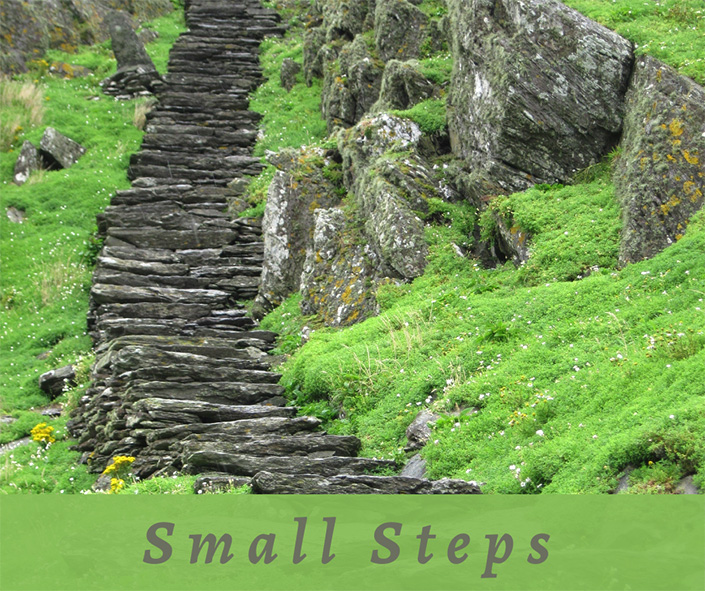Sacred Reflections


Love Your Enemy
How?
We had been
talking about
a graduate-level course
on LOVE.
The course requirements
seemed daunting:
“Love your enemies.
Pray for those who abuse you.
Do good to those who hate you.
Bless those who curse you.”
“How do I do that?”
my study partner
bravely asked.
“I can be neutral
towards my enemy.
Not wish them harm.
But love them?
I have no idea how to do that.”
It seems the author of
this wisdom course on LOVE
anticipated this question.
The very next teaching
lays out a kind of
“how-to” manual.
“If someone hits you,
don’t respond with violence.
If someone steals your coat,
wonder what else they might need.
Give generously to those who ask for help.
If someone takes from you,
let them keep it.”
As we considered this
“how-to-love” list
I notice some basic elements.
First,
Love is an action.
“Do something!”
Interestingly,
I do not have to
“like” someone very much
to take an action
to Love them.
Second,
the “doing”
does not have to be
a big sweeping gesture.
We grow our way
into graduate-level Loving
with small steps.
When someone hits me
I stand my ground.
I do not run.
I do not hit back.
This applies to emotional
as well as physical violence.
When someone gossips
about me,
I do not talk about them to others.
When having a heated argument
with an adversary,
I do not respond
with unkind words,
meant to hurt their spirit.
Another element of
of graduate-level Loving
is trusting
instead of fearing.
When my enemy
takes something from me,
and I let them keep it,
it’s an opportunity
to trust that I will be ok
without it.
I will may miss it.
I may feel the sting
of having my personal space
violated.
But I do not need to be afraid.
Instead, I can lean into a Love
bigger than me.
I practice trusting
that if I need what was taken,
it will come back to me.
If I do not need it,
my attachment to it
will lessen.
This awareness of my own needs,
can also shift the way
I see my enemy.
Instead of just focusing
on their behavior
I can get curious
about their needs.
“Why did they steal my coat?”
What else might they need?
“Why do they constantly criticize me?”
What might they be afraid of?
An interesting thing happens
when we look beyond
our enemy’s behavior,
to what might be driving it.
Our perception can shift even further.
“Enemy” is a label
we give to people
we do not like,
who trouble us,
hurt us,
or make us afraid.
To name someone
as our “enemy”
depersonalizes them,
strips them of their humanity.
Imagining that our “enemy”
might have needs,
restores their humanity,
which makes Loving them
easier.
When I think about
how these small gestures
can change our perception,
two teachers come to mind.
The first is a man who
really practiced
one of the teachings
in this graduate-level course on Love:
“Pray for those who persecute you”
He lived in New York City
when the word trade towers
were attacked on 911.
He knew many people
who died that day.
Struggling to metabolize
his pain and grief,
he began praying for his enemy,
Osama Bin Laden.
This man’s prayer
beautifully embodies
what it means to
Love in small steps.
Every morning he
engaged in one simple practice.
He closed his eyes.
He imagined holding Osama Bin Laden
in his arms.
He lifted his arms,
imagining lifting Osama Bin Laden
into the Light of Love.
That’s it.
A short body prayer,
taking less than 5 minutes.
In writing about this experience,
he shared that on some mornings
his grief and rage
were so strong,
the weight of lifting
Osama Bin Laden into the Light
seemed more than he could manage.
He could barely lift his arms.
Nevertheless he persisted.
Every day.
For months.
And then one day,
as he lifted Osama Bin Laden
into the Light,
he noticed it was easy.
His enemy seemed not to weigh anything.
In the moment of that noticing
the lyrics to a song flooded into him,
“He ain’t heavy, he’s my brother”.
He prayer had shifted his perception.
My other teacher
in this practice is
Nelson Mandela.
As a prisoner in South Africa
on Robben Island
his response
to an unquestioningly pro-apartheid
18-year-old white prison guard,
was respect.
Rather than label his guard
as an enemy,
Mandela remained curious
about him,
asked him about his upbringing,
and then for gardening tips
when he found out this young man
had grown up on a farm.
Such curiosity,
and then interested questions,
remind me what the
small steps of Loving my enemy
look like.
And how powerful
they can be.
Nelson Mandela’s respect
for his young prison guard,
produced respect in return.
The young man began to see
beyond his assumptions
about his “enemy”,
and empathy
for the aging Mandela grew.
So much so,
that when Mandela’s wife
brought Mandela’s infant grandchild
to visit,
this prison guard
risked a 10 year prison sentence
for himself,
when he allowed Mandela
to hold his granddaughter.
Our instructor
in this graduate-level
course on Love,
talks about the power
of these small gestures
over time
when he says,
“A good measure,
pressed down,
shaken together…
will be put into your lap
running over;
the measure you give
will be the measure you get back.”
To do “a good measure”
is to do enough.
Not a lot.
Enough.
Take the small step.
Pray for an enemy 5 minutes a day.
Show respect.
Be curious about their life.
Wonder about their needs.
Ask questions.
Refrain from “hitting” back.
“pressed down,
shaken together… “
means these small steps add up,
like when I shake down
the flour in my measuring cup
so I can add more.
“Loving my enemy”
is the accumulation
of small gestures,
taking many small steps,
over time.
Although such gestures
seem minor,
our wisdom teacher
in this graduate-level course on Love
assures us they are powerful.
They “will be put into your lap
running over;”
Love is never wasted.
It finds it’s way back to you,
“the measure you give
will be the measure you get back”
Like Nelson Mandela
holding his baby granddaughter.
I think, also, of some of the grumpy guests
who’ve visited the Free Food Market
on my farm.
Some take way more food
than they need.
Others create fear and discord
by complaining and criticizing
about the food
or low long they have to wait.
Every time we have responded
with respect and curiosity
I’m astounded by what
comes back to us.
Many times these folks
end up volunteering!
“Love your enemies,”
our instructor on Love
teaches us.
“Pray for those who abuse you.
Do good to those who hate you.
Bless those who curse you.”
It seems a daunting lesson.
Until we break it down
into small steps.
Over time
they bring us home
to Love.
Questions for Reflection
Who gets under your skin? Irritates you? Maybe you don’t think of the as an “enemy”, but you don’t like them?
How can you get “curious” about this person? What small step could you make to learn more about them?
Which lessons in this graduate-level course on Love, have you tried? Which one seems to be calling to you right now?